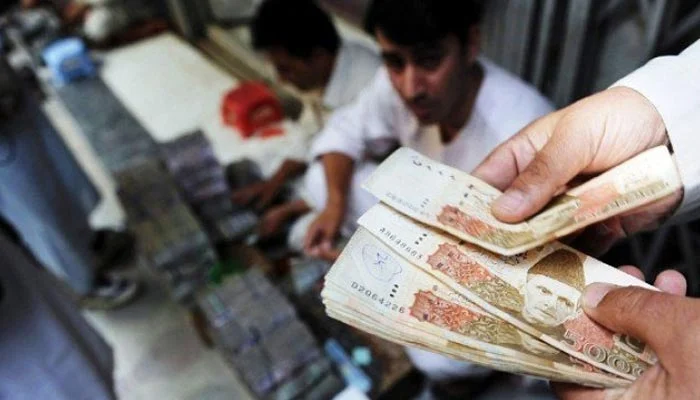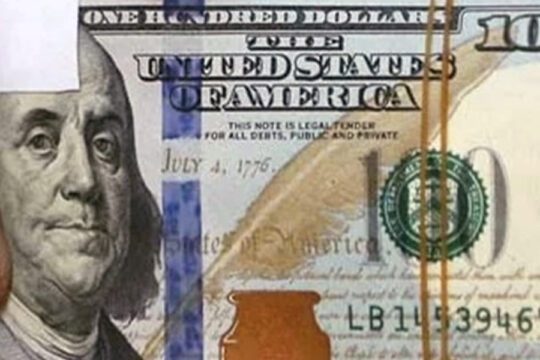
The Pakistani rupee hit a record low against the US dollar on Tuesday, falling as low as 224 during intraday trading as a result of increased political unpredictability that destroyed market confidence and provided more material for “speculators.”
The rupee was severely devalued during the trading session, reaching 224 at one point before modestly appreciating to finish at 3.06 percent lower.
According to the State Bank of Pakistan (SBP), the rupee fell by Rs6.79 or 3.06 percent at the closing to reach Rs221.99.
Interbank closing #ExchangeRate for todayhttps://t.co/pjx8HeEs52 pic.twitter.com/yp6mrPuyaq
— SBP (@StateBank_Pak) July 19, 2022
According to a post-market report from brokerage firm Arif Habib Limited, this is the largest day-on-day depreciation since June 26, 2019. (AHL).
The rupee had lost about 2% of its value against the US dollar on Monday as political unrest following the Punjab by-elections sent the market into a frenzy, causing it to settle at a record low of 215.2.
Tuesday’s reports suggested the precipitous dip was caused by high import costs and further political uncertainties. The pressure was further increased by Fitch Ratings’ downgrading of Pakistan’s outlook.
Following Pakistan Tehreek-e-(PTI) Insaf’s victory in the elections held on Sunday, analysts claim that calls for general elections have accelerated, once again pushing economic reforms to the back burner.
According to Intermarket Securities’ Head of Research Wajid Rizvi, “the political storm in the making has disrupted policy continuity.”
In relation to the International Monetary Fund (IMF) programme, he claimed that this had caused speculation.
The downgrading of Pakistan’s outlook by Moody’s last month and Fitch today, according to Rizvi, has increased uncertainty.
Considering the material decline in Pakistan’s external financial position and financing conditions since early 2022, Fitch Ratings agency on Tuesday reduced Pakistan’s outlook from stable to negative.
In a challenging economic and political environment, Fitch projected significant risks to Pakistan’s continuing access to credit when the IMF programme expires in June 2023.
“Things are not looking bright with regard to the political atmosphere,” added Rizvi, “despite the recovery in remittances.” The government is more inclined to pursue popular initiatives than fiscal austerity, he added, “since elections may be right around the corner.”
Samiullah Tariq, Head of Research at Pakistan Kuwait Investment Company, noted that the rupee’s drop was brought on by payment pressure brought on by oil imports and ongoing political unrest.







